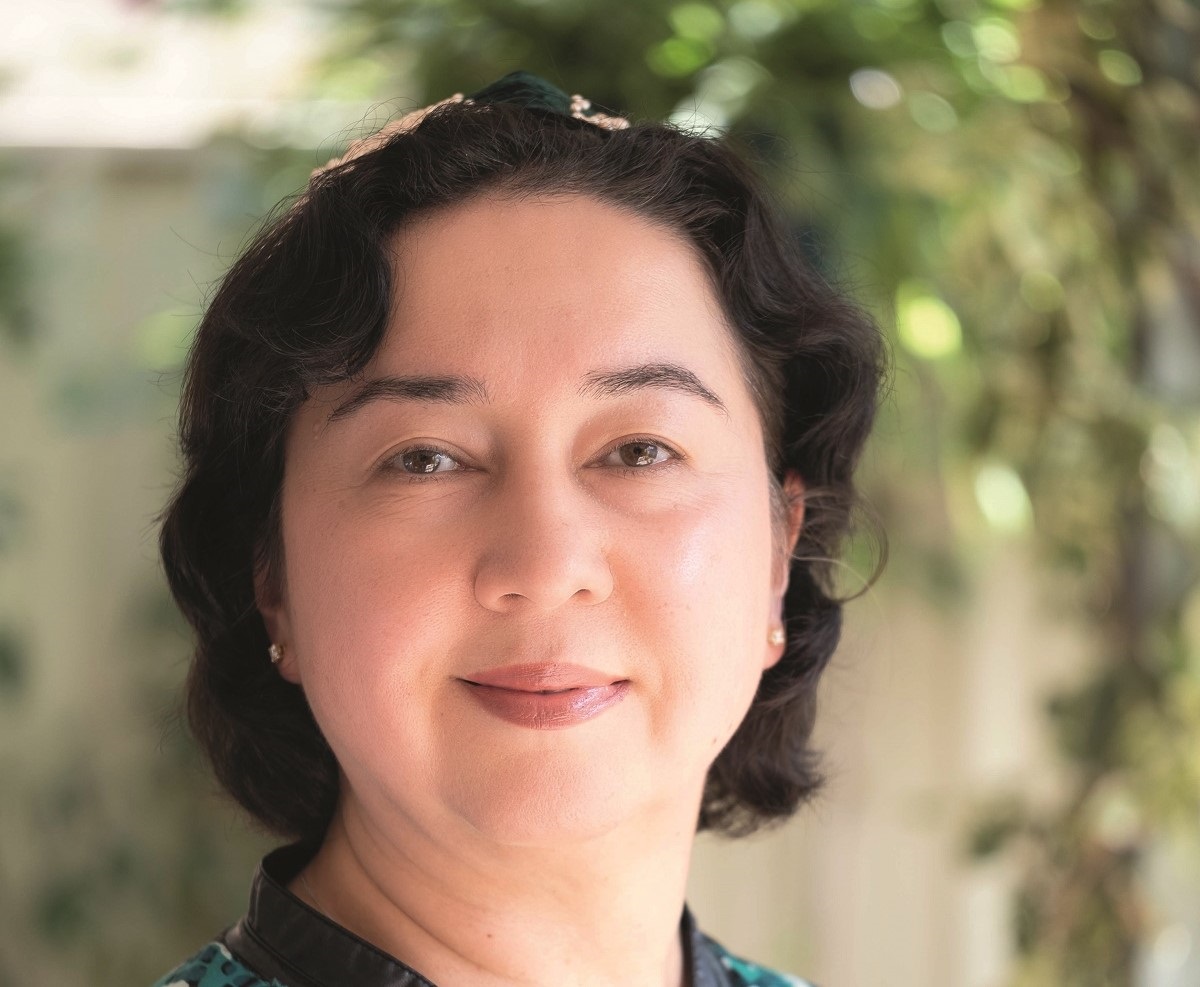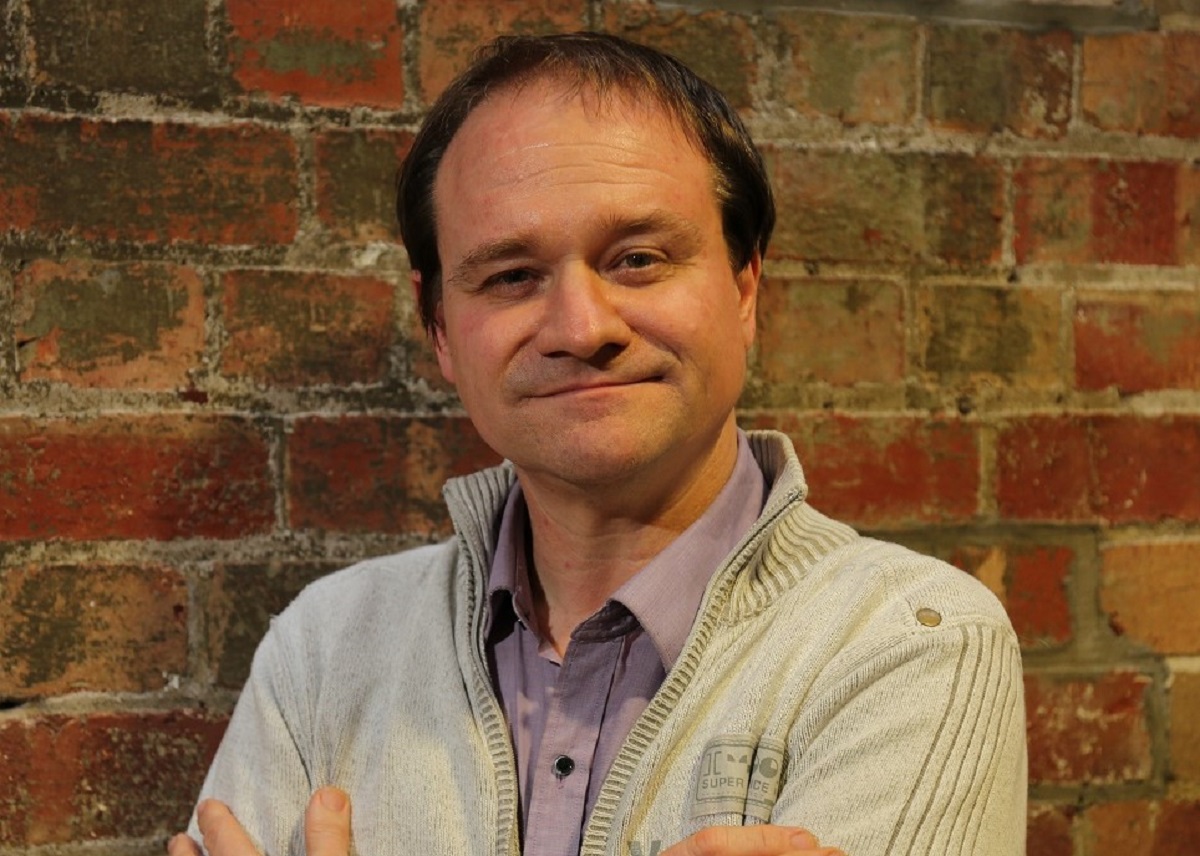By Andrew Humphries
When Ramila Chanisheff addressed Uniting Church members during Synod 2023 in November last year, she brought a message of great importance, and support, for the ethnic Uyghur population of East Turkistan.
The Australian-based President of the Australian Uyghur Tangritagh Women’s Association outlined the brutal crackdown by Chinese authorities that has seen many Uyghurs killed, imprisoned and forced into labour camps to create the goods that China exports to the world.
Among those goods are solar panels, with China now exporting about 80 per cent of the world’s solar panels.
Ramila says that since 2016 China has been guilty of systemic ethnic cleansing and other human rights abuses in East Turkistan, an area rich in resources like gas, oil, cotton and polysilicon, which is used in the production of solar panels.
Those Uyghurs not killed have been imprisoned or forced into camps as cheap labour, which allows China to export goods to the rest of the world at low cost.
China has been able to turn the export of solar panels into a huge economic driver in a very short time, but the dilemma for Australians is that the solar panels we want to install as a renewable energy initiative have almost certainly been made in East Turkistan using forced labour.
“While solar panels are wonderful, the story behind their production isn’t so wonderful,” Ramila says.
“I’m all for the environment and free energy, but we’ve got to think about what cost this comes at, when you’ve got a whole ethnicity being ethnically cleansed (and forced into labour camps).”
In addressing Synod 2023, Ramila wanted to raise the level of awareness around what is happening in East Turkistan, also known as the Chinese province of Xianjing, and offer an opportunity for Uniting Church members to advocate on behalf of the ethnic Uyghur population there.
Ramila’s address was part of a wider discussion during Synod 2023 around the issue of ethical procurement and investment, with Senior Social Justice Advocate Mark Zirnsak from the Justice and International Mission Unit putting forward a resolution to address the issue.
The resolution resolved “to lament that all parts of the Synod cannot avoid business transactions where the goods and services supplied will have involved serious human rights abuses, excessive environmental damage or other severe criminal activity in their production”.
It then called on Synod Ministries and Operations, congregations, presbyteries, and Uniting Church agencies U Ethical, Uniting Vic.Tas and Uniting AgeWell to:
• seek to deal with businesses that uphold ethical standards, including transparency in their ownership;
• not invest in and to avoid purchases from businesses involved in ongoing serious human rights abuses, excessive environmental damage and non-trivial criminal activity, where there is a viable alternative supplier;
• not invest in and to avoid purchases from businesses that have been proven to have been involved in serious human rights abuses, excessive environmental damage and non-trivial criminal activity in the last five years, unless there is strong verification that the business has corrected its past practice and conducted meaningful remediation of its past wrongdoing; and
• not have dealings with any business that has been established through criminal activity, or purchased with proceeds of crime, in the previous 20 years.

Australian-based President of the Australian Uyghur Tangritagh Women’s Association, Ramila Chanisheff.
In putting forward the resolution, Mark says it’s important to consider the issue of forced labour, or slave labour, in general within a theological framework.
“The ‘church’ is, in the first instance, a new way of being in the world, a way derived from the incarnate Easter Christ and inspired by the Holy Spirit,” he says.
“In this sense, the church lives out of this new reality in each time and place – contextually ‘in the world but not of the world’, in anticipation of God’s promised fulfilment for all creation, completed in Jesus Christ.
“Thus, through its business dealings, the Uniting Church should point towards the coming Kingdom.”
In East Turkistan, says Mark, the Chinese government has made it difficult to get a full picture of the extent of the use of forced labour in the production of its goods for export.
“The (Chinese) regime’s involvement makes it impossible to conduct effective on-the-ground investigations to determine if forced labour is present in the production of certain goods,” Mark says.
“Investigators I have spoken with who have experience working in China have reported that any attempts at meaningful investigation of forced labour inside China are now treated as industrial espionage by the regime.
“Responses from Chinese suppliers cannot be relied upon as evidence that forced labour is not present in the production of goods.”
Ramila says it is time the rest of the world, including Australian authorities, called out these human rights abuses by China.
“It’s about giving some background and educating everyone about what’s happening over there,” she says.
“My message is that a lot of people still don’t know what’s happening in East Turkistan, and how China is treating the Uyghur population.
“It’s also about asking people buying these products to demand assurances from the manufacturers that they haven’t been made using forced labour.”
At a Synod level, Mark says it is important careful consideration is given to exactly how products being used are manufactured in other parts of the world.
“A clash of values occurs where any part of the Synod puts the financial sustainability of its existing operations ahead of the need not to be supporting businesses involved in human rights abuses, environmental destruction or other criminal activities,” he says.
“A significant danger exists that such business dealings become justified through the argument the greater good the Synod is providing into the world cancels out the abuses and environmental destruction associated with our transactions.”

Senior Social Justice Advocate Mark Zirnsak is a leading voice on the issue of forced labour.
Ethical concerns drove Uber ban
As Senior Social Justice Advocate within the Synod’s Justice and International Mission Unit, ethical procurement, and the related issue of secure work, is a hot topic for Mark Zirnsak.
Last year, it was popular delivery vehicle Uber, and its failure to pay its drivers properly for their work, that attracted Mark’s attention.
There was also concern about Uber’s long-standing lack of transparency surrounding its tax affairs worldwide.
The reality, says Mark, is that Uber ride-share drivers earn about $12 an hour, while for delivery drivers and riders it can be as little as $6.67 an hour.
That’s why in August last year, he was successful in having a ban placed on Synod Ministries and Operations staff using Uber and Uber Eats, due to the treatment of drivers and delivery riders, as well as concerns over their respective business models.
Adding to the heat on Uber was the release early last year of the Uber files, a treasure trove of material which painted a nasty picture of how the corporation conducted its business affairs globally.
“That release really caused us to go ‘yes, this really fits the bill of a company engaged in a whole model that revolves around insecure work’, and we now have something that has caught our attention to investigate,” Mark says.
“The survey feedback from congregation members and tax material release by the Centre for International Corporate Tax Accountability and Research were the two things that drove us to have more of a look at Uber, and that look does fit our previous pattern of addressing insecure work and exploitation of workers.
“This isn’t new territory for us but what is different is the model Uber and other ride-share platforms are using to pursue their aims.
“Clearly it’s all about the business model of Uber and, while there may be some drivers who it suits, the impression we have is that for a substantial number of drivers who derive their main income from Uber, it is exploitative,” he says.
“It’s all about long hours for low pay.”
Mark says the basic problem with Uber’s business model is that it regards its drivers as independent contractors.
“Effectively, Uber is arguing that having a ride with a driver is like calling a plumber or electrician to your home,” he says.
“In other words, they are saying ‘we’re not employing them, they are an independent contractor’ and, I think, for the vast majority of us that just doesn’t pass the sniff test.”
In announcing the Synod’s Uber decision in August last year, Moderator Rev David Fotheringham said it was part of long-running campaigns to ensure a fair go for workers.
“The Uniting Church has a long history of seeking to ensure that people get fair and just treatment in their employment,” he said.
“Uber and other ride-share corporations are another stage in those businesses who seek to avoid having to comply with employment laws that apply to employees.”

